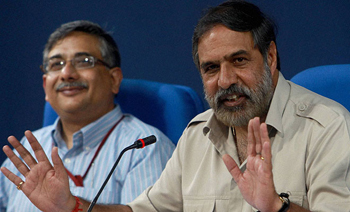
In defence production, it retained the right to approve proposals beyond 26 per cent on condition that it involves state-of-the-art technology.
The move will allow companies such as Vodafone, Telenor, Sistema and others to operate on Indian soil without an Indian partner. Foreign investment in telecom sector was currently allowed to a maximum of 74 per cent. The FDI caps were raised in 12 sectors, including insurance, oil and gas, single brand retail and power exchanges. The FDI in civil aviation has been, however, left unchanged at 49 per cent.
In insurance sector, in which the government is trying to build a consensus for a long time, the FDI cap was raised from 26 per cent to 49 per cent under automatic route, implying foreign firms do not need approval by the government before investing in the sector. However, the FDI in insurance is subject to approval by Parliament.
While, the FDI cap in defence sector remained unchanged at 26 per cent, higher limits of foreign investments in “state-of-the-art” technology will be considered by the Cabinet Committee on Security, said Commerce and Industry Minister Anand Sharma. On what he meant by "state-of-the-art", Sharma said the term would be defined by the Defence Ministry.
The rise in FDI cap across a majority of the sectors is expected to increase dollars flows into the Indian economy and also improve the investor sentiment which has taken a beating in the past. The decision to relax sectoral FDI caps in some areas and relaxation of FDI route in some others was taken at a high-level meeting chaired by Prime Minister Manmohan Singh on Monday evening.
In single-brand retail, 49 per cent FDI was allowed under the automatic route. Beyond that limit, the FDI will have to be approved by the Foreign Investment Promotion Board (FIPB). No decision was taken on raising FDI caps in airports, media, brownfield pharma and multi-brand retail.
FDI of up to 100 per cent was allowed in courier services under automatic route. In credit information companies 74 per cent FDI under automatic route was allowed.
Sharma said the government would soon prepare a note on Tuesday’s decision on FDI. It is expected to come before the cabinet next week.
Foreign direct investments in India had taken a beating in the past couple of years. The minister said that FDI inflows in the first quarter this fiscal were 25 per cent more than the first quarter of last fiscal.
Tuesday’s decisions were based on recommendations of a committee headed by Economic Affairs Secretary Arvind Mayaram which had suggested relaxing investment caps in about 20 sectors.








Comments
Add new comment